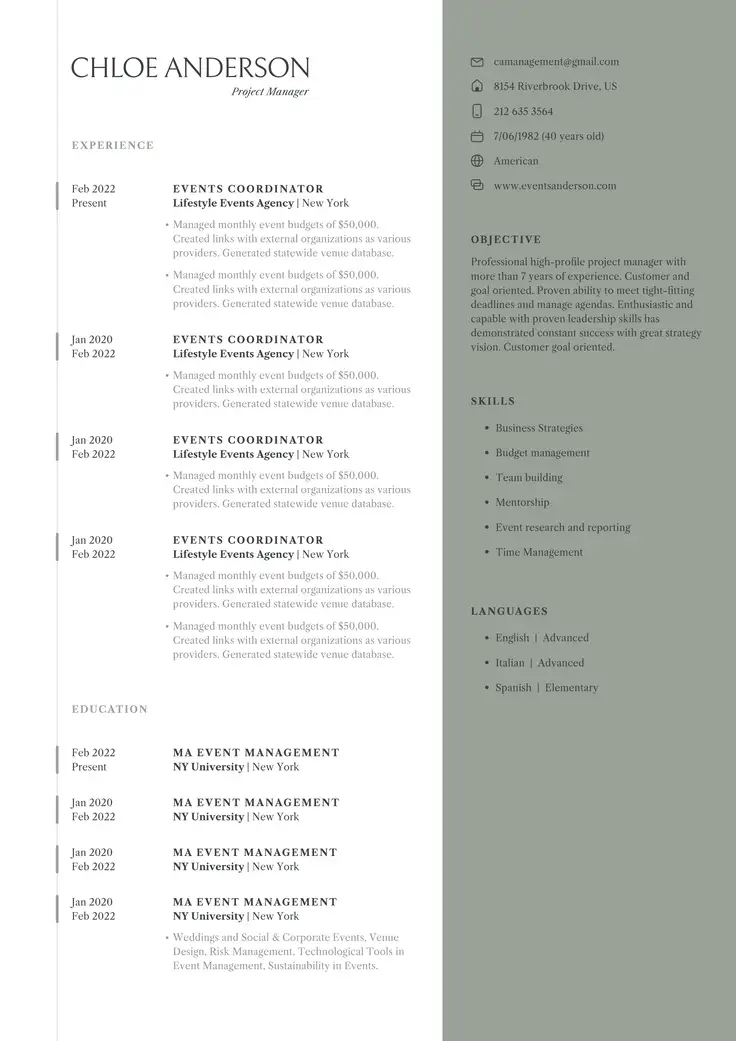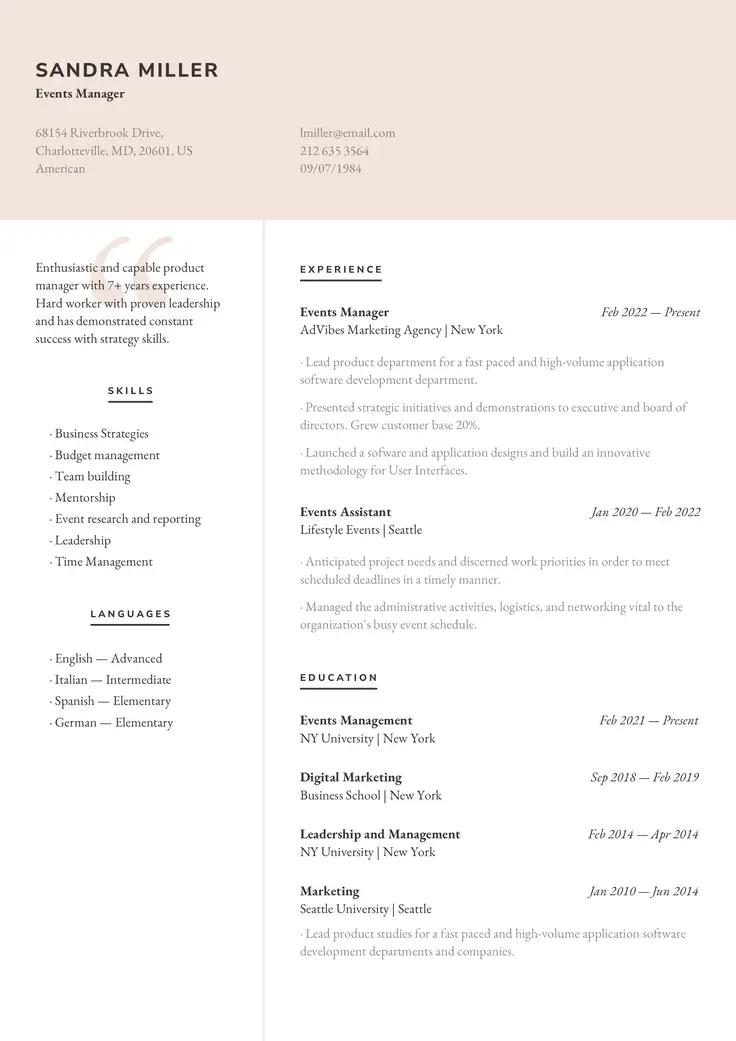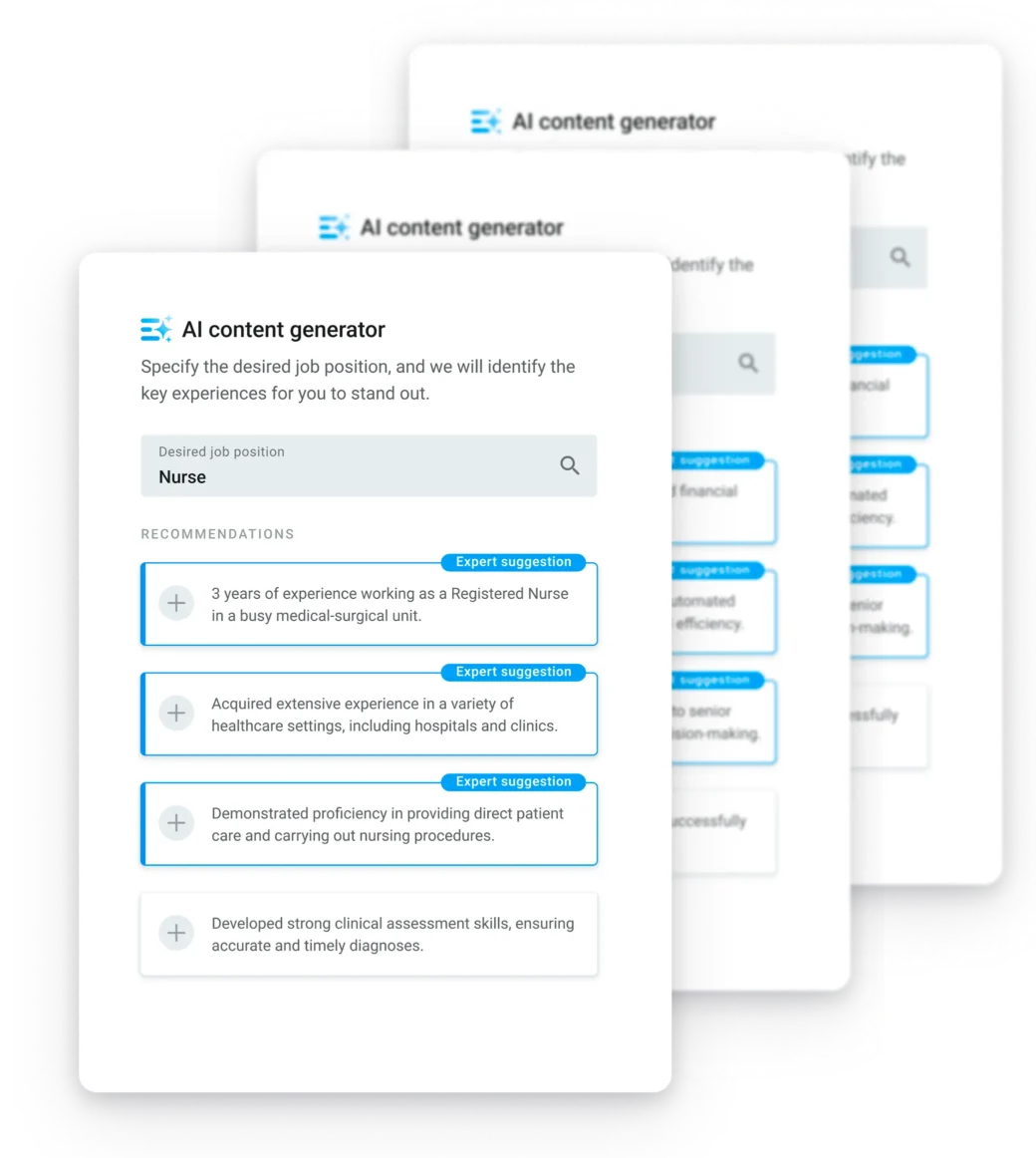If you want to stand out in today’s competitive job market, you need to clearly demonstrate your competitive edge on your resume. Adding more sections to your resume can feel confusing and overwhelming, however, by mentioning your honors and other professional development participation you can increase your chances of getting hired. In this article, we are going to show you how to add a conference or seminar to your resume.
Over the years, many employers have shared their desire to hire more proactive and adaptable professionals who believe in the importance of continuous learning.
If you enjoy networking and learning about emerging trends, you’ve likely been to or will go to a conference or seminar related to your field. Attending industry-related conferences allows you to build your professional brand while also making connections that can prove beneficial long-term.
Attending conferences and seminars also demonstrates your commitment to your field, self-improvement, and dedication to continuous learning. Employers understand that they need employees who value continuous growth because that’s what helps push them forward.
To ensure you fully understand how to add a conference or seminar to your resume, we’ll go over:
- Where to put seminars and conferences attended in your resume
- How to list conferences and presentations in your resume
- When adding seminars and conferences is most beneficial
We’ll even go over how trainings and seminars attended look in a resume example. After gathering this information, you can try out our AI-supported resume builder to quickly create your application.
Craft your ideal resume with our intuitive editor
Increase the possibility of getting the job you want with our professional resume templates
Does My Resume Need Information on Conferences or Seminars?
There are so many personal branding, growth, learning, and networking opportunities available when attending conferences in your field., In addition to the opportunities listed, there are many more benefits to attending conferences. However, many applicants ignore this part of their background on their resume simply because they are not sure where to put it or how it ties in to their professional history.
Even though we know that recruiters will be more interested in learning more about your skills and hands-on work experience, adding the conferences can be helpful.
This is especially the case for:
- Career changers
- Recent graduates
Specifically, adding a seminar or conference to your resume can help you if you want to find a job in any of the following industries:
- Academia
- Marketing and Advertising
- Higher education
- Engineering
- Business
- Arts and Culture
- Medicine and Healthcare
- Information Technology (IT)
- Design and Creativity
However, if you think it won’t be important to the position, be as brief as possible. Space is precious on your resume, and you only want to highlight your most essential qualifications.
Below, we’ll look at how a conference or seminar can be successfully added to your document.
How to add Conference Details to Your Resume
When writing your resume, you must be strategic with how you phrase and display your accomplishments. Your goal is to capture the attention of the recruiter or hiring manager, quickly. This includes being clear, brief, and straight to the point. Your resume is not your extensive portfolio, this means you won’t need to cover every conference you’ve attended or presentation given.
This is especially true if this is an everyday part of your job. However, if you give a major keynote address at one of the world’s biggest conferences or you’re selected to facilitate a specialized training or workshop then this deserves to be highlighted.
When creating this section, you will need to indicate the following information:
- Names of the keynote speakers (note: if you attend a panel session, it’s ok to indicate that it was a panel and include the lead speaker’s name).
- Dates of the conference (note: you only need to include conferences or seminars attended within the last 5 years, you can showcase prior conferences on your LinkedIn profile or a separate portfolio).
- Name of the talk
- The organization hosting the event or the name of the event
- Location
For example, you would write conferences on your resume like this
Smith J and O’Neill T (2021, August) Example Presentation. Presented at Example Conference, New York
Example of adding a session with a panel:
Panel led by Smith J and O’Neill T (2021, August) Example Presentation. Presented at Example Conference, New York
If you are adding a keynote or training that you personally led, the format will be similar, except you will want to highlight that you were selected or requested for the opportunity:
Selected by (Name of Agency) to provide keynote/training on Name of Presentation. Presented at Example Conference, Location
A resume template will help you fill those details in with ease.
If you’re working in higher education or completing a Ph.D., it can also help to indicate conferences you’ve attended.
This is especially the case if you’re seeking your first postdoc role or wish to show off your industry knowledge.
On your resume, this will need a different approach than the one detailed above. You will need to show the employer:
- The name of the conference
- The organizing body
- The years attended
For example, this should be listed on your resume in the following ways:
Example 1: Example Organization Body (EOB) – 2017, 2018, 2019
Example 2: Example Professional Conference (EPC) – August 2019

Where to Put Seminars on a Resume
When it comes to including seminars and conferences on your resume, placement is key.
Typically, these details are best suited for two sections:
- Education section: If you’re a recent graduate or your seminars are highly relevant to your field of study under your degree(s). Adding them to your education section can enhance your qualifications.
- Dedicated section: For professionals in roles where continuous learning is essential, creating a separate section might be more impactful. This is especially true if you’ve participated in significant events, such as delivering a keynote address or leading a seminar. You can choose to call this section your “Career Enrichment” or “Continuing Education.”
Remember, the key is relevance and impact. Include seminars that add value to your profile and align with the job you’re applying for.
If you’re wondering if the seminars you’ve attended add value, simply ask yourself, “What skill or new knowledge did I gain?” Often conferences discuss emerging trends and hot topics, these are what you want to highlight on your resume to show employers you are “in the know.”
Key Points
Whether you’re changing fields, want to continuously learn, or show that you are motivated, seminars can be a game changer.
Simply remember to:
- Highlight more information if conferences and seminars are important to your sector
- Include seminars and conferences in the right place on your resume
- Don’t forget the most important details
If you combine these tips with our easy-to-use tools, you’ll have little issue impressing hiring managers.
Related Posts







